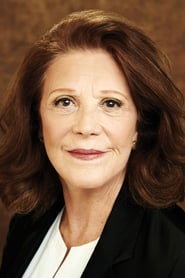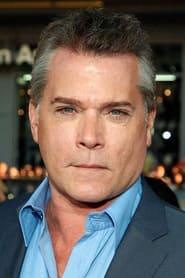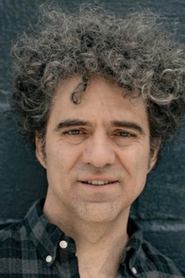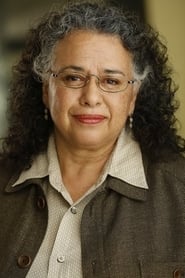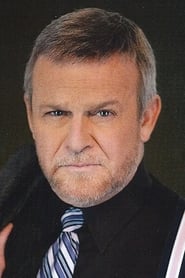
Ask Your Own Question
What is the plot?
Sorry, we aren't able to watch and write up a full detailed plot yet. Check back in a few days.
What is the ending?
In the ending of "Wanderlust," George and Linda decide to leave the commune and return to their old life in the city. They realize that while the commune offered a sense of freedom and community, it wasn't the right fit for them. They embrace their relationship and the challenges of their life together, ultimately finding a balance between their desires for adventure and stability.
As the film concludes, George and Linda are seen back in their apartment, where they are preparing for a new chapter in their lives. They are more in tune with each other and have a deeper understanding of what they want from their relationship. The film ends on a hopeful note, suggesting that they will navigate their future together, embracing both the chaos and the comfort of their lives.
As the film "Wanderlust" approaches its conclusion, the narrative unfolds with George and Linda grappling with their experiences at the commune. After a series of comedic and often chaotic events, they find themselves at a crossroads.
Scene 1: The commune is buzzing with activity, but George and Linda feel increasingly out of place. They witness the eccentricities of the commune members, from the free-spirited lifestyle to the unconventional relationships that flourish around them. George, played by Paul Rudd, is particularly unsettled by the lack of structure and the open relationships that challenge his views on commitment.
Scene 2: A pivotal moment occurs when George and Linda attend a gathering where the commune members openly discuss their feelings and relationships. Linda, portrayed by Jennifer Aniston, is drawn to the idea of freedom and self-exploration, while George feels a growing sense of discomfort. The tension between their desires becomes palpable, highlighting their differing perspectives on life and love.
Scene 3: After a series of humorous yet revealing interactions with the commune's residents, including the charismatic leader, they begin to question their own values. George's frustration peaks when he realizes that the commune's ideals do not align with his own. He feels a longing for the stability and familiarity of their previous life, while Linda is torn between the allure of the commune and her love for George.
Scene 4: The climax of their internal conflict occurs during a dramatic confrontation with the commune members, where George expresses his desire to leave. Linda, initially resistant, begins to see the merit in George's perspective. The emotional weight of their relationship hangs in the balance as they navigate their feelings for each other amidst the chaos of the commune.
Scene 5: Ultimately, they make the decision to leave the commune together. As they pack their belongings, there is a sense of relief mixed with nostalgia. They share a heartfelt conversation about their journey, acknowledging the lessons learned and the growth they experienced during their time there.
Scene 6: The final scenes depict George and Linda returning to their apartment in the city. The familiar surroundings evoke a sense of comfort, yet they are changed individuals. They embrace each other, symbolizing their renewed commitment to one another. The camera captures their smiles, suggesting a newfound understanding and appreciation for their relationship.
Scene 7: The film concludes with a montage of their life together, hinting at the challenges they will face but also the strength of their bond. George and Linda are shown navigating their everyday lives, now more equipped to handle the complexities of their relationship. The ending leaves the audience with a sense of hope, emphasizing the importance of communication and compromise in love.
In summary, George and Linda's journey culminates in a return to their roots, enriched by their experiences at the commune. They emerge as a stronger couple, ready to face the world together, embodying the film's exploration of love, freedom, and the search for identity.
Is there a post-credit scene?
In the movie "Wanderlust," there is indeed a post-credit scene. After the credits roll, the scene opens with George and Linda, played by Paul Rudd and Jennifer Aniston, respectively, who are now living in a more conventional setting. They are seen in their new home, which is a stark contrast to the free-spirited lifestyle they experienced at the commune.
As they settle into their new life, George is on the phone, discussing a business opportunity. He seems to be embracing a more traditional path, but there's a hint of nostalgia in his demeanor. Meanwhile, Linda is in the kitchen, preparing a meal, and she appears to be reflecting on their time at the commune, showing a mix of fondness and longing for the freedom they had.
The scene shifts to show them both in a moment of quiet togetherness, suggesting that while they have returned to a more conventional lifestyle, the experiences they shared at the commune have left a lasting impact on them. The post-credit scene encapsulates the theme of the film, highlighting the tension between societal expectations and personal fulfillment, leaving the audience with a sense of hope and possibility for their future.
What leads George and Linda to decide to move to a commune?
George and Linda, played by Paul Rudd and Jennifer Aniston, find themselves in a precarious situation after George loses his job at a New York City-based company. With their financial stability shaken and their apartment being sold, they are left with no choice but to seek a new living arrangement. During their journey, they stumble upon a commune called Elysium, which promises a more liberated and fulfilling lifestyle. The allure of escaping the pressures of urban life and the chance to explore a different way of living draws them in.
How does George's experience at the commune change his perspective on life?
Initially skeptical about the commune's lifestyle, George gradually becomes more open to the unconventional practices and philosophies of the residents. He finds himself drawn to the freedom and acceptance that the commune offers, which contrasts sharply with his previous corporate life. As he engages with the community, he begins to question his own values and what it means to live authentically, leading to a significant internal transformation.
What role does the character of Seth play in George and Linda's journey?
Seth, portrayed by Justin Theroux, is a charismatic and free-spirited member of the commune who becomes a pivotal figure in George and Linda's experience. His laid-back attitude and unconventional views on relationships and life challenge George's more traditional mindset. Seth's flirtation with Linda creates tension and jealousy, forcing George to confront his insecurities and ultimately pushing him to reevaluate his relationship with Linda and what he truly wants.
How does Linda's character evolve throughout the film?
Linda starts as a somewhat conventional woman, feeling the pressures of societal expectations and her marriage to George. As she immerses herself in the commune's lifestyle, she begins to embrace her individuality and desires. Her interactions with the other commune members, especially Seth, lead her to explore her own identity beyond being a wife. This journey of self-discovery allows her to assert her needs and desires, ultimately leading to a more empowered version of herself.
What are some of the challenges George and Linda face while living in the commune?
George and Linda encounter several challenges while adapting to life in the commune. They struggle with the lack of privacy, the communal living arrangements, and the unconventional practices of the residents, such as open relationships and alternative parenting styles. George's initial discomfort with the free-spirited nature of the commune leads to comedic yet poignant moments of conflict, as he grapples with his own values and the expectations of the community. These challenges force both characters to confront their own beliefs and the dynamics of their relationship.
Is this family friendly?
"Wanderlust," produced in 2012, is a comedy that contains several elements that may not be considered family-friendly. Here are some potentially objectionable or upsetting aspects:
-
Strong Language: The film features frequent use of profanity, which may not be suitable for younger audiences.
-
Sexual Content: There are multiple scenes that include sexual innuendos, discussions about sex, and nudity, which could be inappropriate for children.
-
Drug Use: The film depicts characters using marijuana and discussing drug-related themes, which may be concerning for sensitive viewers.
-
Adult Themes: The storyline explores themes of open relationships and non-traditional lifestyles, which may not resonate well with all families.
-
Mature Humor: The humor often leans towards the raunchy and may include jokes that are not suitable for younger viewers.
These elements contribute to a tone that is more aligned with adult audiences, making it less appropriate for children or sensitive individuals.


















